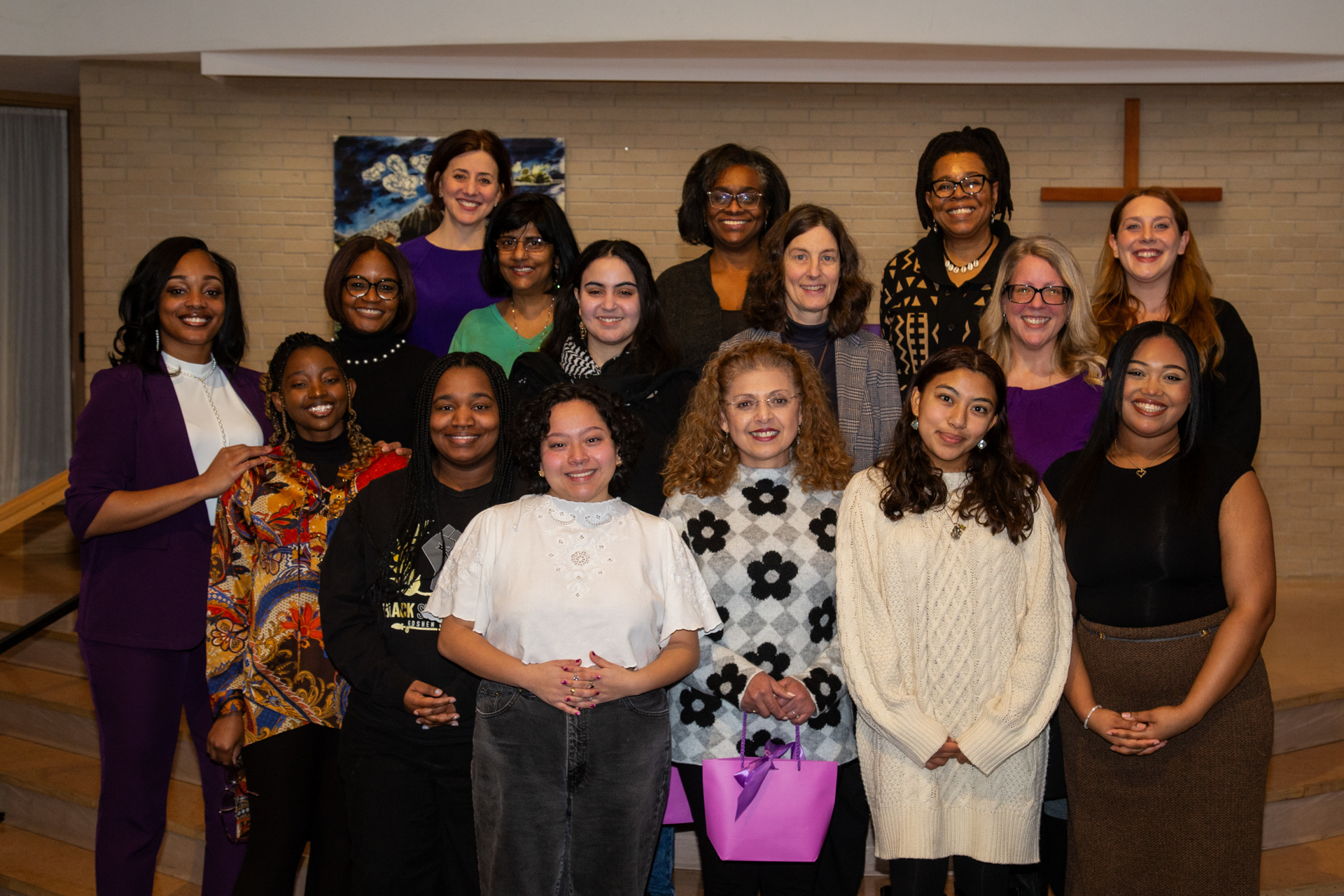Last week, during the college’s annual Dr. Martin Luther King Jr. celebration, students and staff came together to celebrate and honor the contributions of local “sheroes.” The nominees have inspired change, uplifted the voices of others, and made space for future generations to do the same.
Nominated individuals include Kennedy Stewart, Arleth Martinez, Isis Espinoza, Jakyra Green, Mariela Esparza, Bongiwe Ncube, Fatima Zahara, Adela Hufford, Solidia Brown, H. Roz Woll, Cyneatha Millsaps, Regina Shands Stoltzfus, Robina Sommers, Rocio Diaz, Kathy Meyer Reimer, Aja Ellington and Emily Hahn.Among the nominees stood the leaders of the Black Student Union, the first-place and runner-up awardees of the Global Citizenship Award, professors, musicians, student-athletes, mothers, advocates, scientists and writers.
Jakyra Green, a senior English education major, has held various leadership roles on campus including co-executive editor for The Record, president of BSU, and first-place winner of Mennonite Central Committee’s Binational Intercollegiate C. Henry Smith Peace Oratorical Contest.
In his nomination, Lawrence Giden, the community engagement coordinator for the Center for Community Engagement, noted her contributions to the campus community through her writing, passion for inclusivity, and time as president of the BSU having paved the way for future generations of “sheroes.”
Green defined “shero” as “recognizing and celebrating the strength and resilience of everyday women. It’s these women who are making a difference in ways that often go unnoticed. It encompasses beautiful Black women and acknowledges their impact on society.
“It entails BIPOC women standing in solidarity with each other,” Green added. “It’s about standing up for what I believe in and not staying silent, no matter how many people want me to.”
Kennedy Stewart is a sophomore elementary education major and current vice president of the BSU, member of Prevention Intervention Network and the Teach Elkhart County program.
Stewart’s dedication to bridging the gap between people of diverse backgrounds and fostering a safe campus community for all individuals has made her a “shero” to many.
Stewart continues to empower and encourage the voices of all individuals, especially BIPOC students: “I want to see other people of color getting involved. I want to see different people with a variety of backgrounds in leadership positions. I see that you’re here. You see that I’m here.
“Going into leadership was a struggle, but now it is the biggest part of my identity. I want to be able to make space for myself and others. We are all welcome in this space,” she said.
Regina Shands Stoltzfus is a professor of peace, justice and conflict studies, an author, co-founder of the Roots of Justice Anti-Oppression program, and recipient of Indiana’s highest civil rights award.
Within her classroom, she makes time to be still, an invitation to her students to project their thoughts into the space and speak truths that many of them have never been granted the freedom to voice elsewhere.
Shands Stoltzfus strives to create inclusive, safe spaces, filled with the faces of her own personal “sheroes” and the occasional Maya Angelou quote.
She describes her own “sheroes” in levels: “on one level they are people that, even if I don’t know them, or what they have created, have in some way inspired me or challenged me or comforted me and maybe all of those things at the same time.
“On a more personal level,” she continued, “they are individuals who have taken an interest in the world and through various ways, whether it’s through their activism, raising questions, or even simply being willing to have a conversation.”
Nevertheless, Shands Stoltzfus’ contributions to the empowerment and justice of marginalized individuals do not make her exempt from her humanity.
She, too, was once navigating the world for the first time, guided by the “sheroes” that came before her.
Most influential of all was her mother, a “shero” who would inspire generations of courage, radical love, and hope.
She explained, “Until I became a mother myself, I did not realize how important and radical and amazing it was that my mother consistently gave me the message that she thought I was the smartest thing on the planet. She let me read anything I wanted to. She went out of her way, went to every Christmas store, to get me a Black doll.”
She reminisces, “At the time, there were no books about Black children. So she went out and she wrote a book about Black children.”
Then, a few years later, she, alongside her writer’s group of all Black women, who all had kids in public schools, created a little publishing company and they would write these books and distribute them to the school.”
Shands Stoltzfus continued, “That kind of model was so incredibly important for me because it speaks to the possibility of ordinary people doing what they do and how powerful it is. It really set a foundation for me among other things, other adults, other teachers.
“It wouldn’t surprise you to know that my mother was an early childhood educator,” she said with a smile.
Green, Stewart and Shands Stoltzfus are only 3 of 17 “sheroes” acknowledged during last week’s event.
The contributions of these “sheroes” illuminated the possibilities arising from interdisciplinary efforts at Goshen College.




